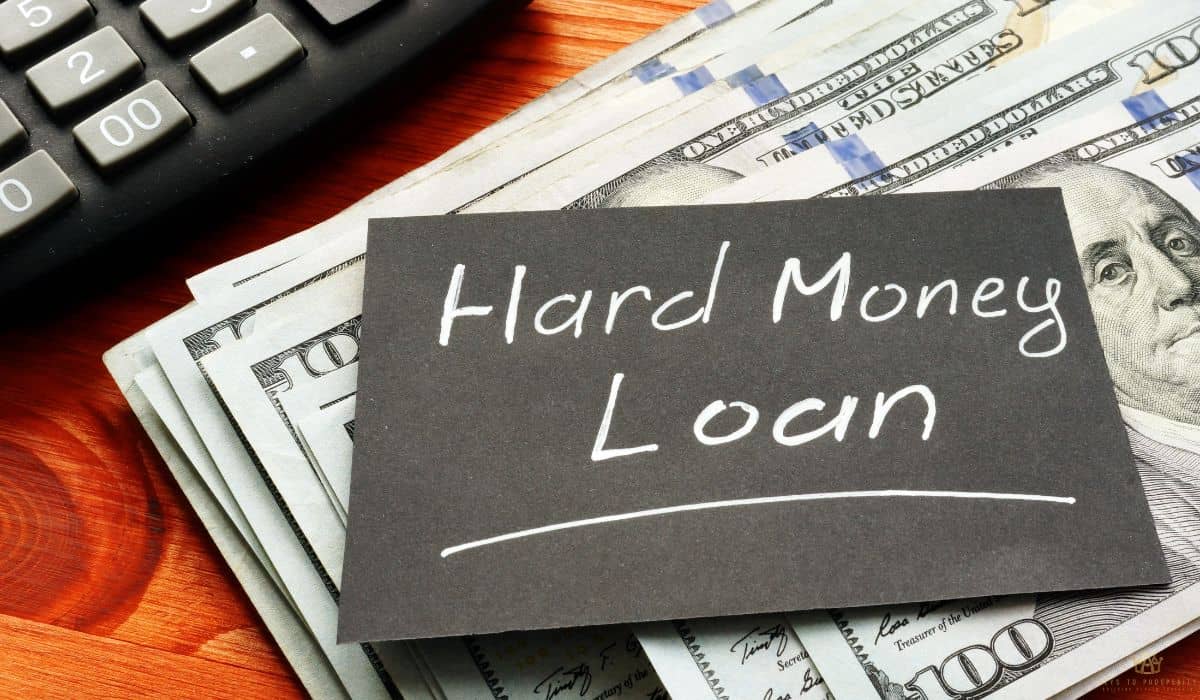Securing financing for a rental property in 2025? Interest rates for commercial real estate loans currently sit between 5.38% and 13.50%, so picking the right loan terms could save you thousands.
With such a wide spread, knowing how to navigate your options is both helpful and uber necessary. From our experience, understanding how to get a commercial loan for rental property is the first big step toward building a profitable portfolio.
This guide breaks down the entire process, highlights the key requirements, and shares practical tips that can help you land the most favorable loan terms available.
If you’re still weighing what type of loan is best for investment property, we’ve got that covered in our previous guide. Up next, we’ll simplify the commercial mortgage application process so you know what to expect.
For a broader look at financing, explore our page on commercial real estate bank loans and compare your options. Let’s get into the details and simplify commercial lending, so you can move forward with confidence, not confusion.
Short Summary
- Commercial real estate loans focus on property income, while residential loans primarily focus on personal income and credit.
- Lenders look for a debt service coverage ratio of 1.2–1.4x and conduct a full property appraisal.
- You’ll need strong documentation like tax returns, a solid business plan, and a minimum 680 credit score.
- Expect a substantial down payment between 20–35% plus additional loan origination fees and closing costs.
- Loan options include banks, credit unions, private lenders, SBA loans, commercial bridge loans, and hard money loans.
- Shopping around with multiple lenders and comparing interest rates can help you get more favorable loan terms.
- Improving your business credit scores and financials increases your chance of approval.
- Investors often refinance commercial properties to improve their loan amount and monthly payments after stabilization.
Understanding Commercial Real Estate Loans Vs Residential Financing
If you’ve ever looked into buying a rental property, you’ve likely noticed how different commercial real estate loans are from residential mortgages. The two serve different types of investments, and the approval process works very differently.
Let’s break it down so you can decide which loan type fits your next rental property move.
How Lenders Evaluate Your Investment
Here’s the biggest difference: residential loans primarily focus on your personal income, credit score, and debt-to-income ratio. They’re based on you as the borrower.
Commercial lending, on the other hand, looks at the property itself. The lender wants to know if the building will pay for itself. They evaluate projected income, operating expenses, and something called the debt service coverage ratio (DSCR).
That ratio needs to show the property brings in more than it costs to own.
For example, if the DSCR is 1.25, it means the net income is 25% more than the annual loan payments. That’s the sweet spot most commercial lenders like to see.
What Types Of Properties Qualify As Commercial
We get a lot of questions about what qualifies. Commercial real estate investments include:
- Multi-family properties with five or more units
- Office buildings and retail spaces
- Mixed-use buildings
- Warehouses
- Other income generating properties
Even if a property has tenants, if it fits this profile, you’re likely looking at a commercial loan.
There are cases where a fourplex started as a residential home loan, but after the investor added a fifth unit, it became eligible for commercial property loans. At that point, they needed a new appraisal and different loan terms.
When Commercial Loans Make More Sense
A commercial mortgage often makes sense when buying a larger investment property, like a 10-unit apartment or a strip mall.
Say someone’s buying a $1.2 million eightplex. A conventional loan likely won’t cut it. Lenders want to see the property’s value, projected cash flow, and whether the building supports the loan.
Another reason to go commercial? Scale. Investors planning to grow a portfolio usually hit residential loan limits fast. A commercial real estate financing strategy offers more flexibility.
Once investors make the leap from single-family to multi-unit rentals, they find commercial property financing more aligned with their goals.
Knowing when to pivot helps avoid delays, extra fees, and repeat paperwork. It’s all about choosing the right tool for the job.
How To Get A Commercial Loan For Rental Property: Essential Requirements
Getting approved for a commercial loan seems intimidating, but once you know what lenders are looking for, it gets easier.
It’s all about proving the property can make money and showing that you’re a solid borrower.
Here’s what to expect when you’re ready to finance a rental property using commercial funding:
Know Your Numbers: DSCR And Property Value
One of the first things lenders check is the debt service coverage ratio. Most want a DSCR between 1.2x and 1.4x, which means the property should generate 20–40% more income than it costs to cover the loan annually.
For example, if your total loan payments are $80,000 a year, the net operating income should be at least $96,000 to hit a 1.2x ratio. Anything lower might trigger a denial or reduced loan amount.
Then there’s the property appraisal. The lender wants to know if the property’s value supports the loan you’re asking for. Appraisers factor in location, rental income, vacancy rates, and expenses.
If the building isn’t pulling its weight, the loan may fall through or come with less favorable terms.
Prepare Your Paperwork
A lot of investors hit snags here. To keep things smooth, gather these early:
- Financial statements for the property (if already generating income)
- Two to three years of tax returns
- A solid business plan showing how the property will be used and perform
- The individual borrower’s credit score (aim for 680 or higher)
If you’re a newer investor, the business plan is huge. Use it to explain your experience with income generating properties, projected cash flow, and any steps you’ll take to manage risk.
Down Payments And Loan Costs
Be ready to put some skin in the game. Most commercial loan borrowers need a substantial down payment, usually 20–35%.
We’ve seen cases where investors tried to negotiate down to 15%, only to get hit with higher interest rates or stricter loan terms from private lenders.
And don’t forget closing costs. Common charges include:
- Loan origination fees (typically 1–2% of the loan amount)
- Property appraisal fees
- Legal and processing charges
- Possible balloon payment clause at the end of the loan term
It helps to ask early about all fees so you’re not caught off guard at signing.
Timeline From Application To Permanent Financing
The commercial mortgage process usually takes longer than residential loans. On average, it runs 45 to 90 days, depending on the lender and property type.
Banks and credit unions might move slower than private lenders, especially if there’s missing paperwork or the property isn’t yet stabilized.
If you’re buying something that needs work, like a 6-unit building with high vacancies, lenders might wait until you’ve filled units and reached a steady income before approving permanent financing.
One tip we share often: Don’t rush this. Solid prep on the front end leads to faster closings and fewer headaches. Investors who walk in ready tend to close sooner, even when working with multiple lenders.
Knowing the exact requirements helps you approach the commercial loan for rental with confidence and strategy. No guesswork involved!
Commercial Loan Options And Securing Favorable Loan Terms
Choosing the right financing is just as important as choosing the property itself. Every lender has its own terms, timelines, and expectations. Understanding your options helps you line up funding that fits your goals and keeps your commercial real estate investment on solid ground.
Types Of Lenders: What To Expect
You’ve got choices when it comes to commercial real estate financing, and each one has its perks.
Traditional financial institutions (like big banks) offer competitive interest rates but tend to have tighter requirements and slower processing times.
Credit unions may provide more flexibility and lower fees, especially if you’ve got an existing relationship with them.
Private lenders usually move faster and require less paperwork, though their loan terms may come with higher costs.
For example, an investor was under contract on a multi-unit property with only 30 days to close. Their bank couldn’t meet the timeline, so they worked with a private lender instead and secured funding in two weeks, though at a slightly higher rate.
Specialty Loans: SBA, Hard Money, And Bridge Loans
In certain situations, traditional lenders may not be the best fit. That’s where specialized products can help.
SBA loans (through the Small Business Administration) are ideal for small business owners using part of the property themselves. These loans typically come with lower down payments and longer terms.
Hard money loans are asset-based and faster to close. They’re a good option for short-term needs or properties that don’t yet meet standard lending criteria.
Commercial bridge loans work well for transition periods, like when you’re improving occupancy or refinancing down the line.
Some investors use bridge loans to purchase a property, stabilize it, then shift to long-term financing once the income generating properties had solid rent rolls.
Comparing Lenders And Negotiating Terms
When evaluating multiple lenders, don’t just look at the interest rates. Compare:
- Prepayment penalties
- Loan origination fees
- Required reserves or escrow accounts
- Flexibility on loan length or renewal terms
Your financial situation plays a big role. Some lenders might prioritize the property’s value, others your credit strength. It’s okay to ask questions, clarify fine print, and push back on fees. Being prepared and organized goes a long way!
Refinance Strategies To Improve Your Terms
As your property appreciates or becomes more profitable, it might be time to refinance commercial properties. This can:
- Lower monthly payments
- Secure better loan terms
- Tap into equity for renovations or new acquisitions
Refinancing becomes a smart move once the property’s cash flow improves and you’ve paid down some of the principal. Just remember to time it around market conditions and your portfolio needs.
Exploring commercial loan options thoroughly gives you more leverage and better choices. It’s all about staying informed and playing the long game.
Maximizing Your Commercial Loan Approval Success
Getting approved for a commercial loan comes down to showing lenders that your property, and your financial profile, makes sense. A strong application tells a clear story: the investment is solid, the plan is reliable, and the borrower is ready.
Here’s how to stack the odds in your favor:
Strengthen Credit And Reduce Risk
Before submitting anything, take a close look at your credit. Both your business credit scores and personal history play a role. Some lenders weigh one more heavily than the other, depending on the loan size and type.
To improve your profile:
- Keep personal debts low
- Separate personal and business accounts
- Pay vendors and utilities on time to build your business file
At the same time, aim to reduce personal financial risks like high revolving credit or inconsistent income. Deals can fall apart late in underwriting simply because the borrower had too many credit pulls in a short period.
Build A Business Plan That Shows Experience
Your business plan is more than a formality. It’s how lenders understand your strategy and background. A solid plan should include:
- Projected cash flow and operating expenses
- Estimated rent roll and timelines for stabilization
- Maintenance reserves and exit strategy
- Details on your experience managing income generating properties
For example, one investor added a brief case study in their plan showing how they turned around a 6-unit building with high vacancy. That small addition helped the lender feel confident about approving the next loan.
Use Timing And Assets To Strengthen Your Profile
When possible, apply for funding when your financial statements are at their strongest, which is after lease-up or post-renovation. A few months of stable income can make a major difference.
You can also increase your chances by leveraging personal assets. That might mean offering additional collateral or putting more into the down payment than required. Some commercial lenders take this as a sign you’re serious and capable.
Avoid Common Missteps
Many commercial loan for rental property applications stall for avoidable reasons. Keep these in mind:
- Incomplete or outdated paperwork
- Underestimating expenses in your projections
- Forgetting to update your tax returns or leaving out debts
- Overestimating projected income with no market support
Remember, commercial lenders aren’t only looking at your credit. They’re also evaluating the real estate investments themselves. If the numbers don’t line up or the plan feels rushed, they’ll move on to the next deal.
Success comes from treating the process like a pitch. Be clear, be honest, and show that you’ve thought it through. A confident, organized borrower almost always stands out.
Final Thoughts
Getting a commercial loan for rental property doesn’t have to feel like a guessing game. Once you know what lenders expect and which loan fits your deal, the process becomes a lot more manageable.
Start with the basics, stay organized, and build relationships with lenders who understand your goals. If you’re ready to take the next step, explore more resources on our homepage and see how we can help you move forward with confidence.
Frequently Asked Questions
What Credit Score is Needed for a Commercial Loan?
Most lenders require a credit score of at least 680. However, some private lenders may approve lower scores depending on the property’s performance and your overall profile.
How Much do I Need for a Down Payment on a Commercial Rental Property?
Expect to put down 20% to 35% of the purchase price. The exact percentage depends on the loan type, lender, and strength of the deal.
What’s the Timeline for Getting a Commercial Loan?
From application to closing, commercial loan approvals usually take 45 to 90 days. That timeline may vary depending on the lender, property type, and how complete your documents are.
Can I Refinance a Commercial Loan Later for Better Terms?
Yes, you can refinance commercial properties after they stabilize or gain value. This can lower your rate, improve loan terms, or free up cash for other investments.






